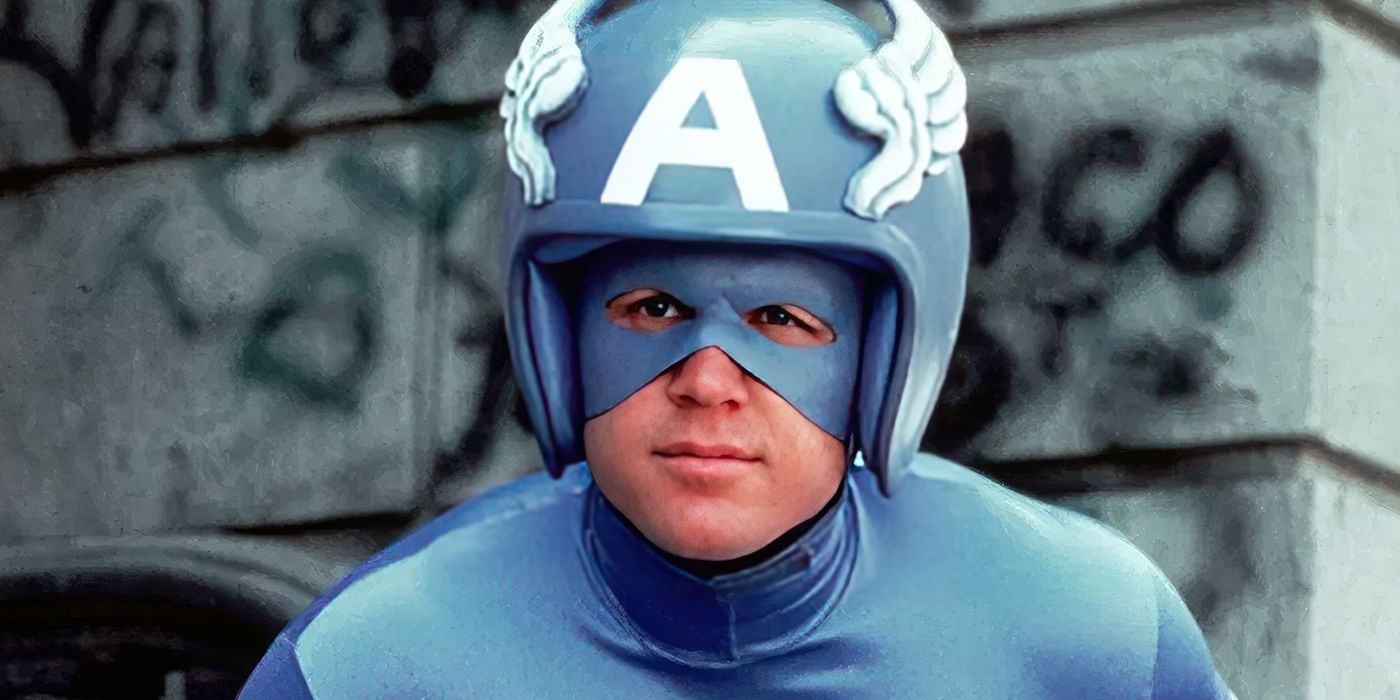The 1970s are often celebrated as perhaps the golden era for cinema, marked by groundbreaking storytelling, auteur-driven filmmaking, and a surge of creativity. Film held pride of place in the culture at the time, yielding countless classics like The Godfather, Jaws, Chinatown, and The Exorcist. However, even a decade as storied as this one has more than its fair share of duds. For every Star Wars, there was a Starcrash; for every Alien, a Zaat.
With this in mind, this list dives into ten of the worst movies to emerge from the 1970s, spanning genres from sci-fi to horror to romantic dramas. Whether plagued by nonsensical plots, wooden performances, or laughable special effects, these films are remembered more for their failures than their merits. They include everything from disastrous sequels to low-budget creature features, all earning their place in the cinematic Hall of Shame.
15
‘The Swarm’ (1978)
Directed by Irwin Allen
“Bees—millions of them—are coming for us all!” Directed by Master of Disaster Irwin Allen (The Poseidon Adventure, The Towering Inferno), The Swarm follows Dr. Bradford Crane (Michael Caine), an entomologist tasked with saving the United States from a devastating invasion of killer bees. The bees attack Texas towns, derail trains, and infiltrate military bases, all while government officials argue about the best course of action.
Despite the film’s disaster movie pedigree and its A-list cast, including Katharine Ross and Richard Widmark, it is remembered as one of the most baffling missteps in the genre. The project somehow takes its cool premise and reduces it to an overlong, underwhelming slog. Scenes stretch on far past their breaking point, with much of the action confined to a drab, budget-conscious bunker that looks less like a command center and more like a community theater set. By the third act, The Swarm fizzles out, its sheer incompetence leaving a bitter taste rather than a sting.
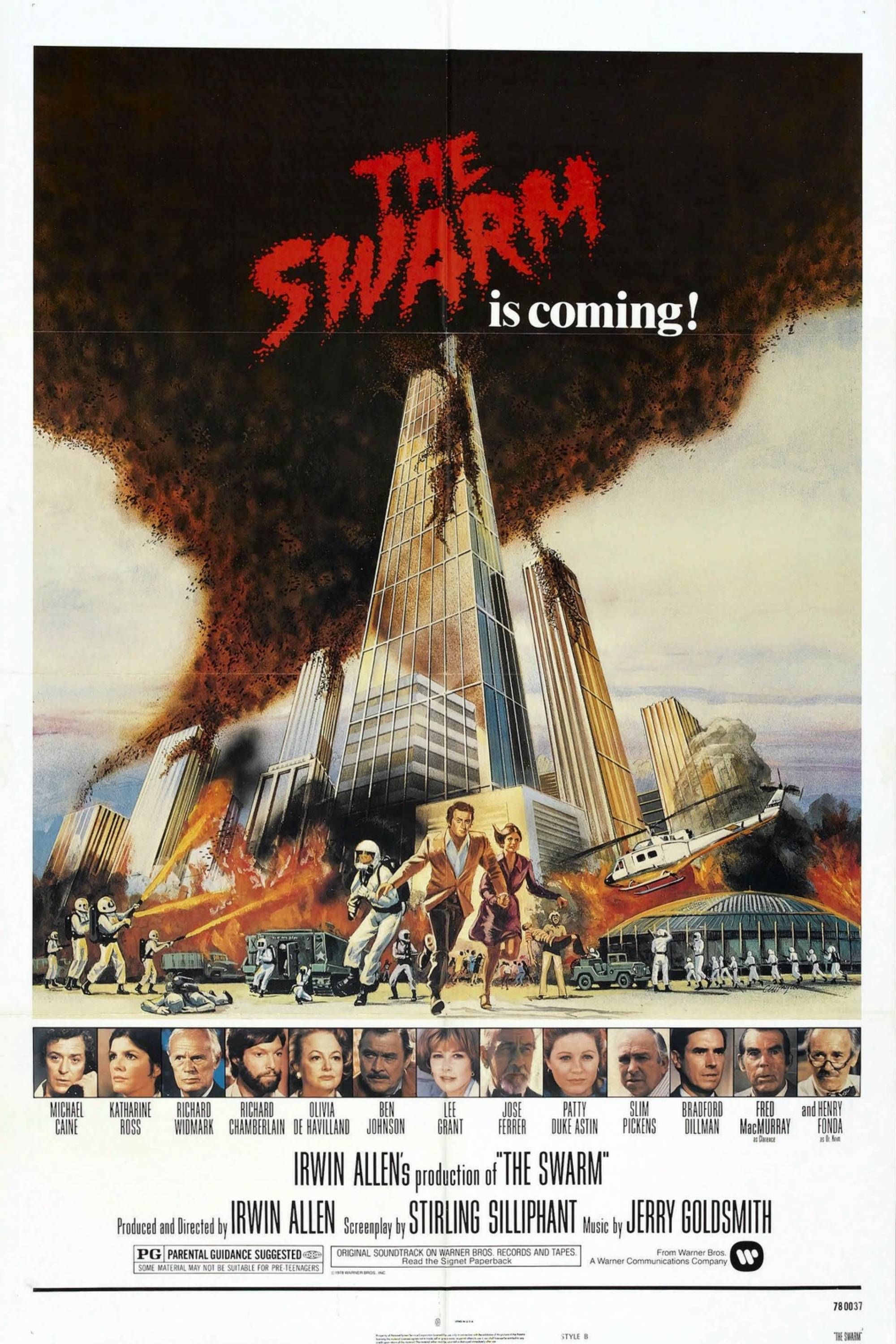
The Swarm
- Release Date
-
July 14, 1978
- Runtime
-
116 Minutes
14
‘Exorcist II: The Heretic’ (1977)
Directed by John Boorman
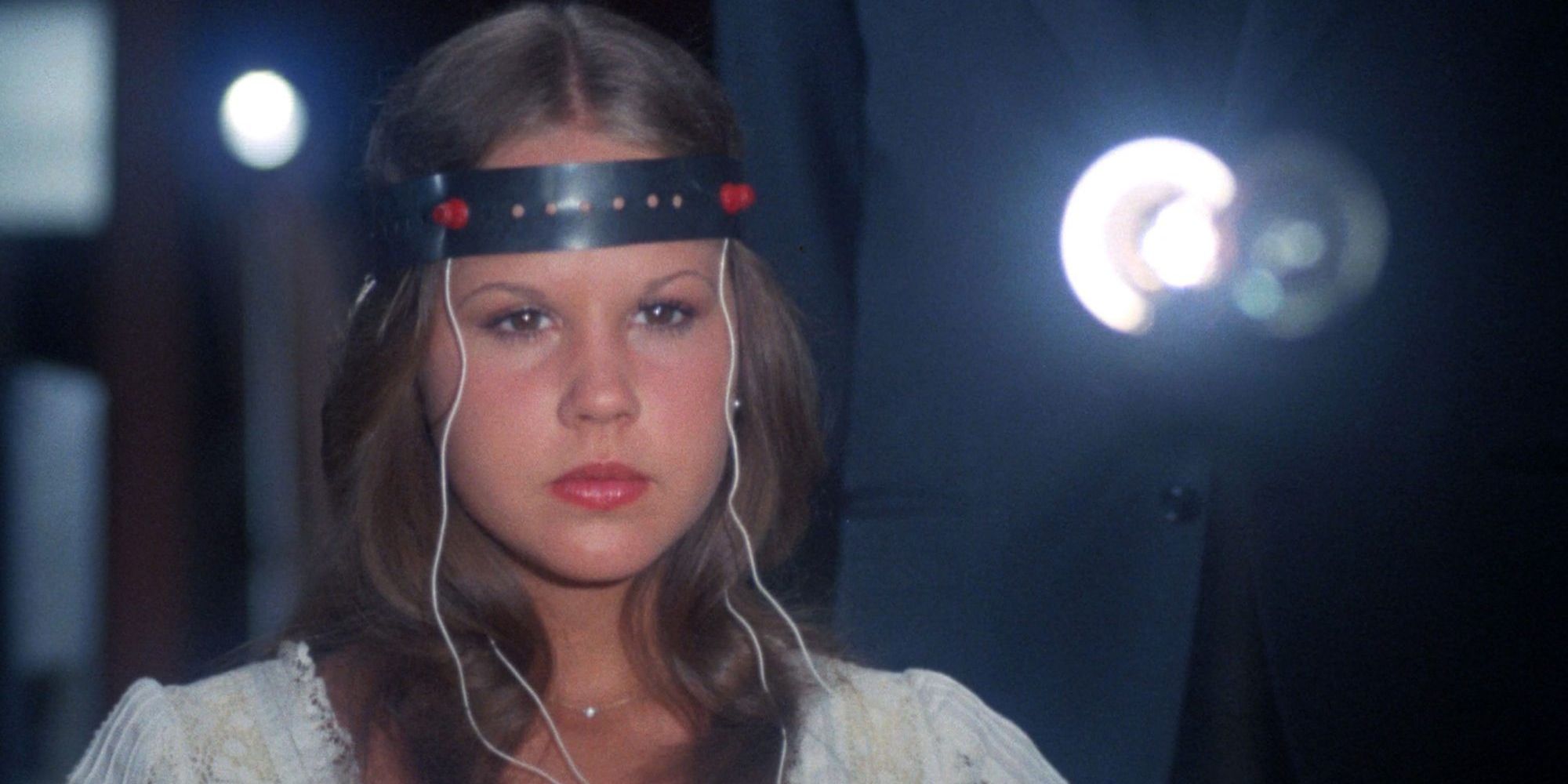
“I was possessed. What’s your excuse?” This sequel to the iconic Exorcist had enormous shoes to fill, but Exorcist II: The Heretic took a wildly different approach, trading in the original’s grounded horror for surreal imagery and a bizarre narrative. Picking up four years after the events of the first film, the story follows Regan MacNeil (Linda Blair) as she undergoes therapy to uncover suppressed memories of her possession. Simultaneously, Father Lamont (Richard Burton) investigates Father Merrin’s (Max von Sydow) death, discovering demonic activity.
While the film’s ambition is commendable, execution is key, and director John Boorman’s vision is so muddled and self-indulgent that it alienates even the most open-minded viewers. This was a major disappointment given his great work on Point Blank and Deliverance. The movie’s occasional visual flourishes and Ennio Morricone‘s memorable (if misplaced) score can’t compensate for the incoherent narrative, wooden performances, and lack of tension.
13
‘The Phynx’ (1970)
Directed by Lee H. Katzin
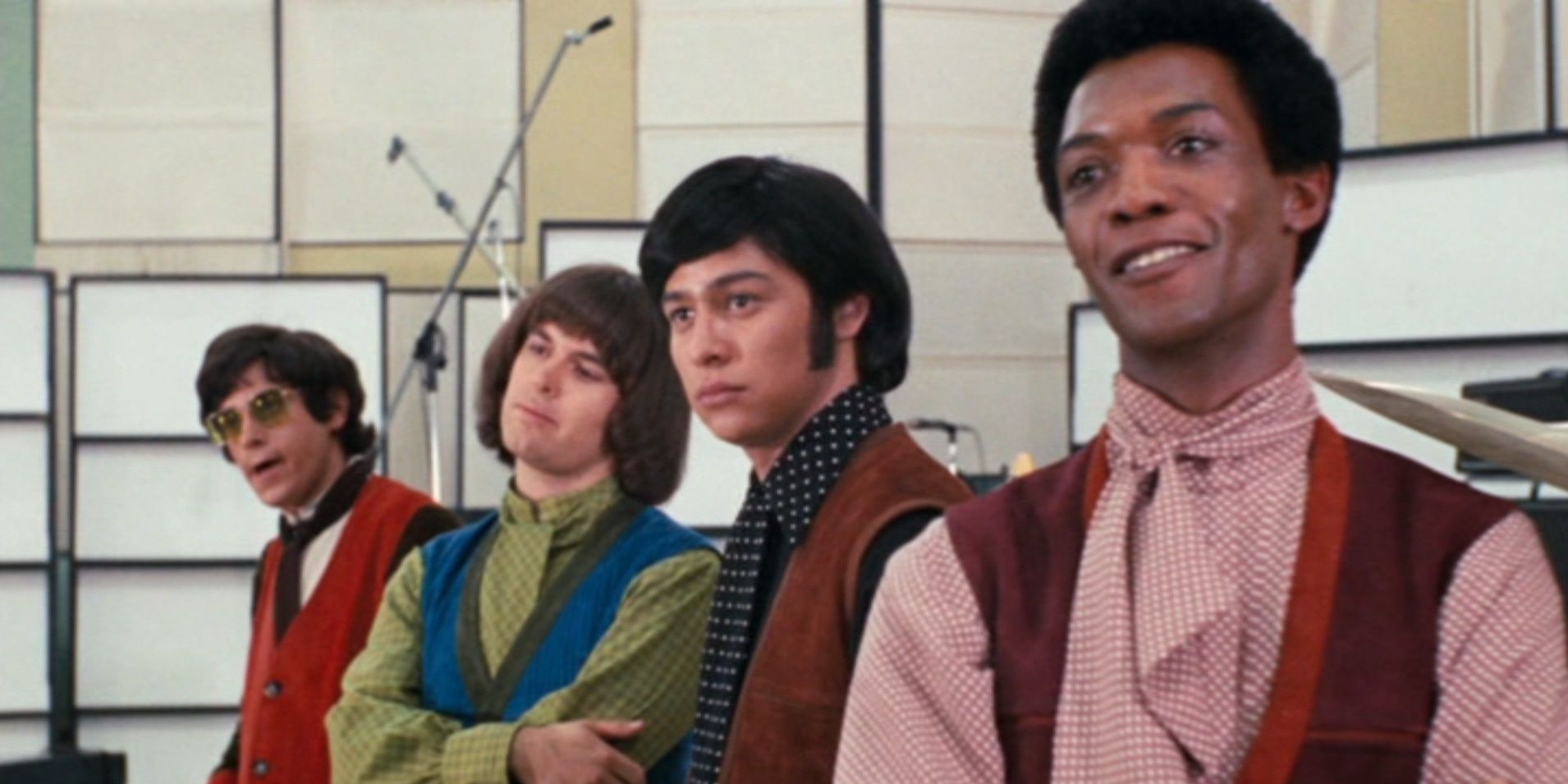
While there are films that age poorly, The Phynx lies in the category of those that were made broken. From the word go, its premise is ludicrous. A wannabe spy war movie, its story follows a secret U.S. task force, a rock band called The Phynx, sent to rescue kidnapped American icons, including Colonel Sanders and Joe Louis, from communist Albania. To do so, they must find a map printed in parts on three different women’s stomachs, which means they must have sex with many girls to find the three women.
And that is the “better” part about the film, because what follows is a chain of musical numbers, non-sequiturs, and scenes that are so tonally off you’d mistake them for parodies of parodies. The A-list star cast includes cameos from Richard Pryor (in a blink-and-regret-it blackface cameo), Dick Clark, Maureen O’Sullivan, and an elderly Rita Hayworth, among a host of other celebrities, all of whom seem dazed by the material. The film’s efforts to ride on hip satire land squarely in chaos. —Namwene Mukabwa
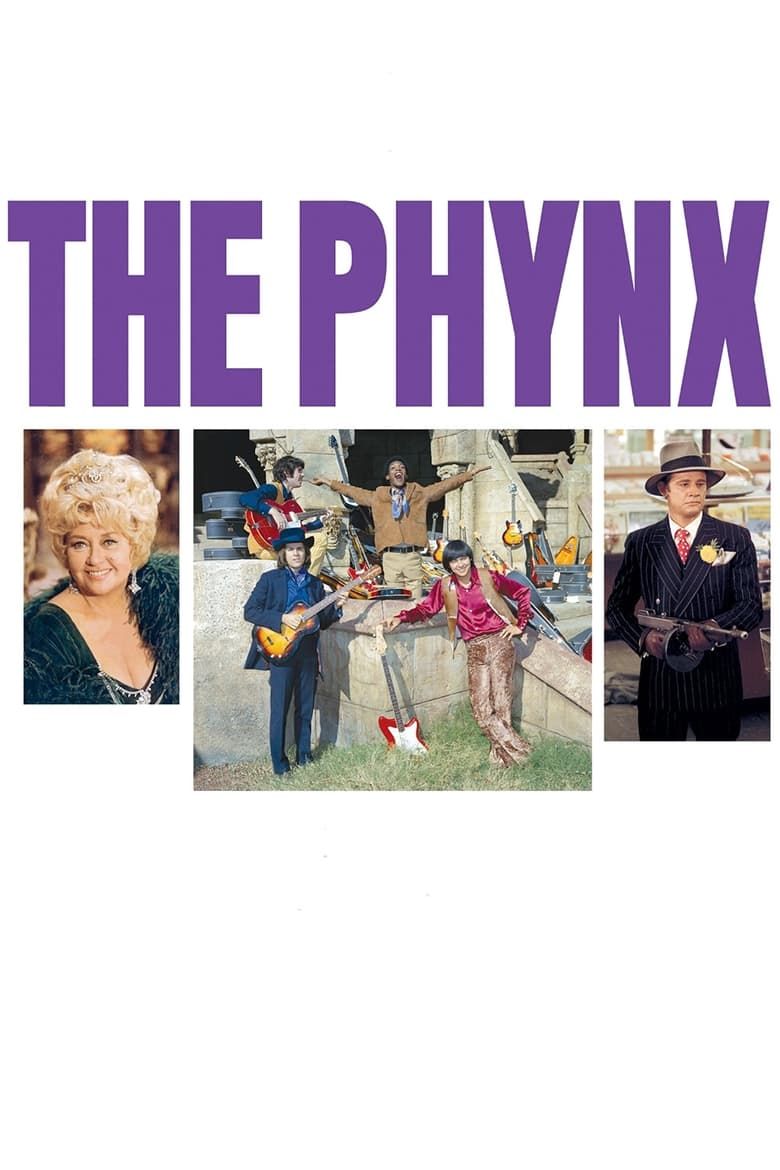
The Phynx
- Release Date
-
March 6, 1970
- Runtime
-
81 minutes
Cast
-

Michael A. Miller
A. Michael Miller of The Phynx (as A. Michael Miller)
-

Ray Chippeway
Ray Chippeway of The Phynx
-

Dennis Larden
Dennis Larden of The Phynx
-

Lonny Stevens
Lonny Stevens of The Phynx
12
‘Starcrash’ (1978)
Directed by Luigi Cozzi
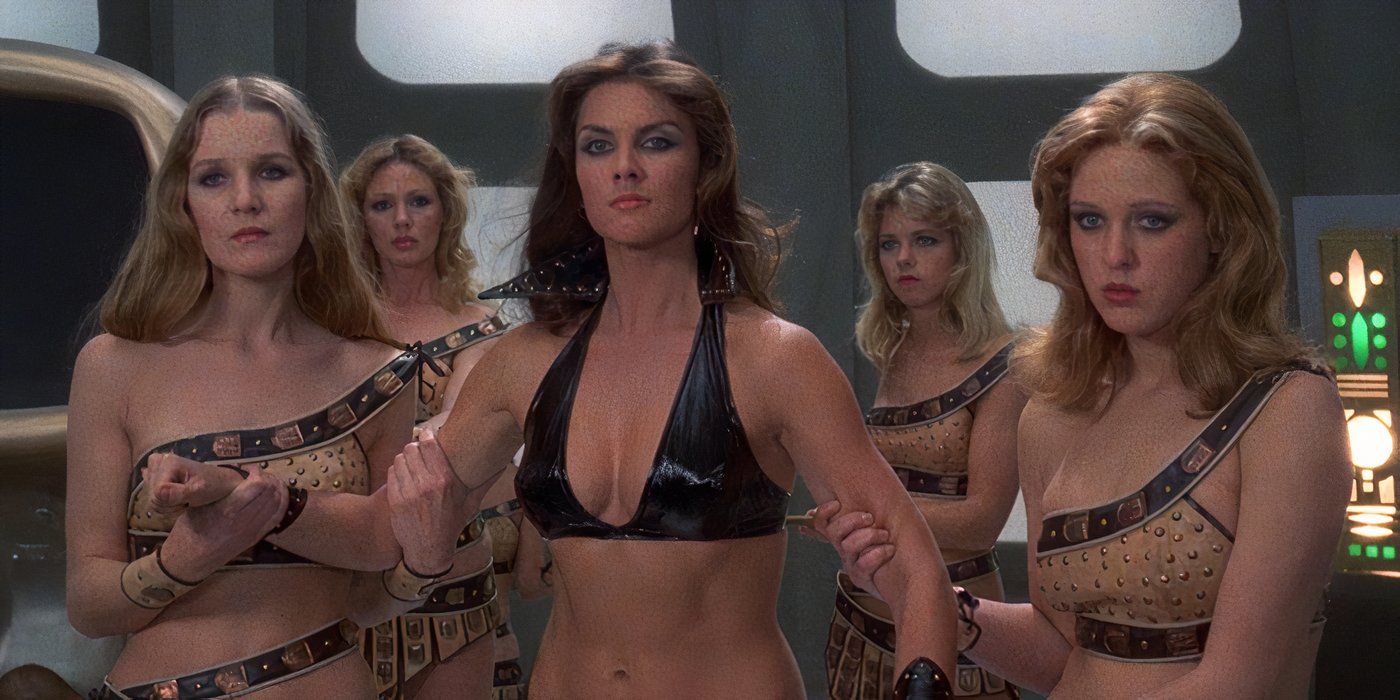
“Prepare for hyperspace… if you can survive this!” Starcrash is a shameless attempt to capitalize on the success of Star Wars, delivering a campy space opera that’s more parody than homage. The plot follows Stella Star (Caroline Munro) and her companion Akton (Marjoe Gortner) as they embark on a mission to rescue the Emperor’s son (David Hasselhoff) and stop the evil Count Zarth Arn (Joe Spinell) from unleashing a powerful weapon.
The finished product is a disjointed series of space battles, poorly choreographed sword fights, and nonsensical dialogue. Characters frequently deliver lines that are unintentionally hilarious. The special effects are equally disastrous, including goofy flashing lights and obvious miniatures. And yet, for all its flaws, Starcrash is undeniably entertaining in its absurdity. There’s a certain charm in its unabashed willingness to throw everything at the screen, whether it’s a stop-motion robot attack or a character’s inexplicable ability to freeze time. It’s very much ‘so bad it’s good‘.
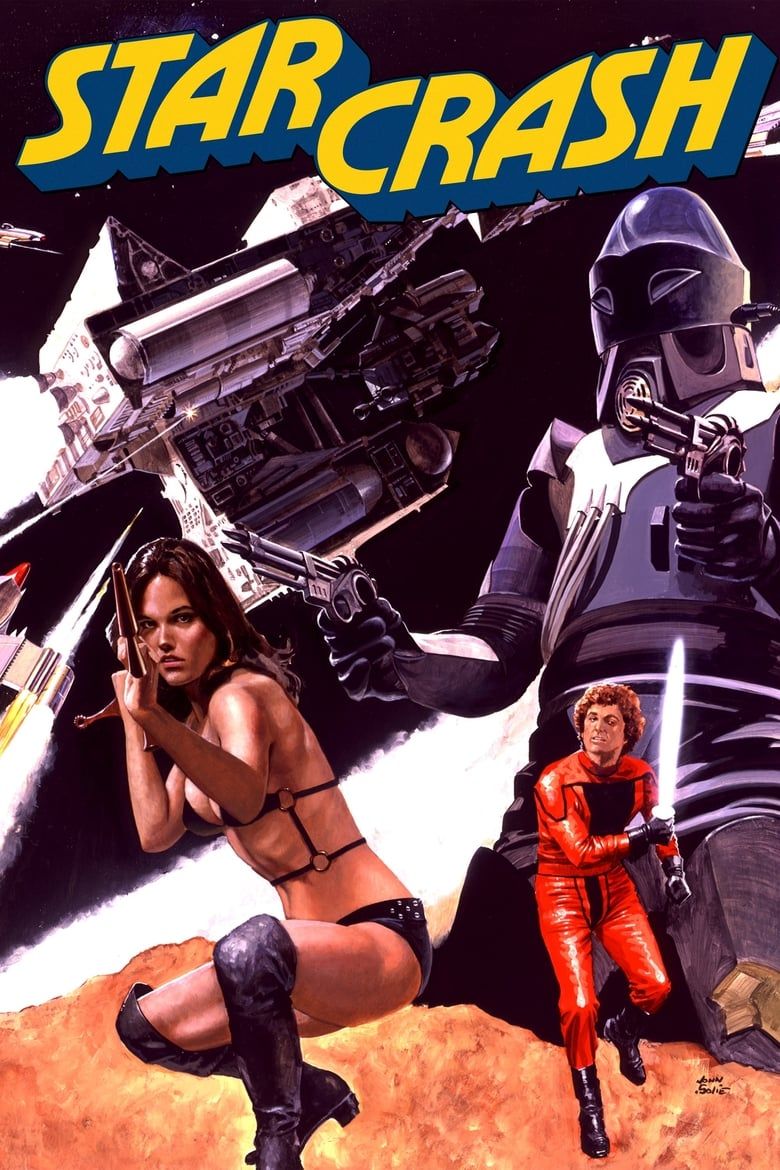
Starcrash
- Release Date
-
March 9, 1979
- Runtime
-
94 minutes
11
‘Trog’ (1970)
Directed by Freddie Francis
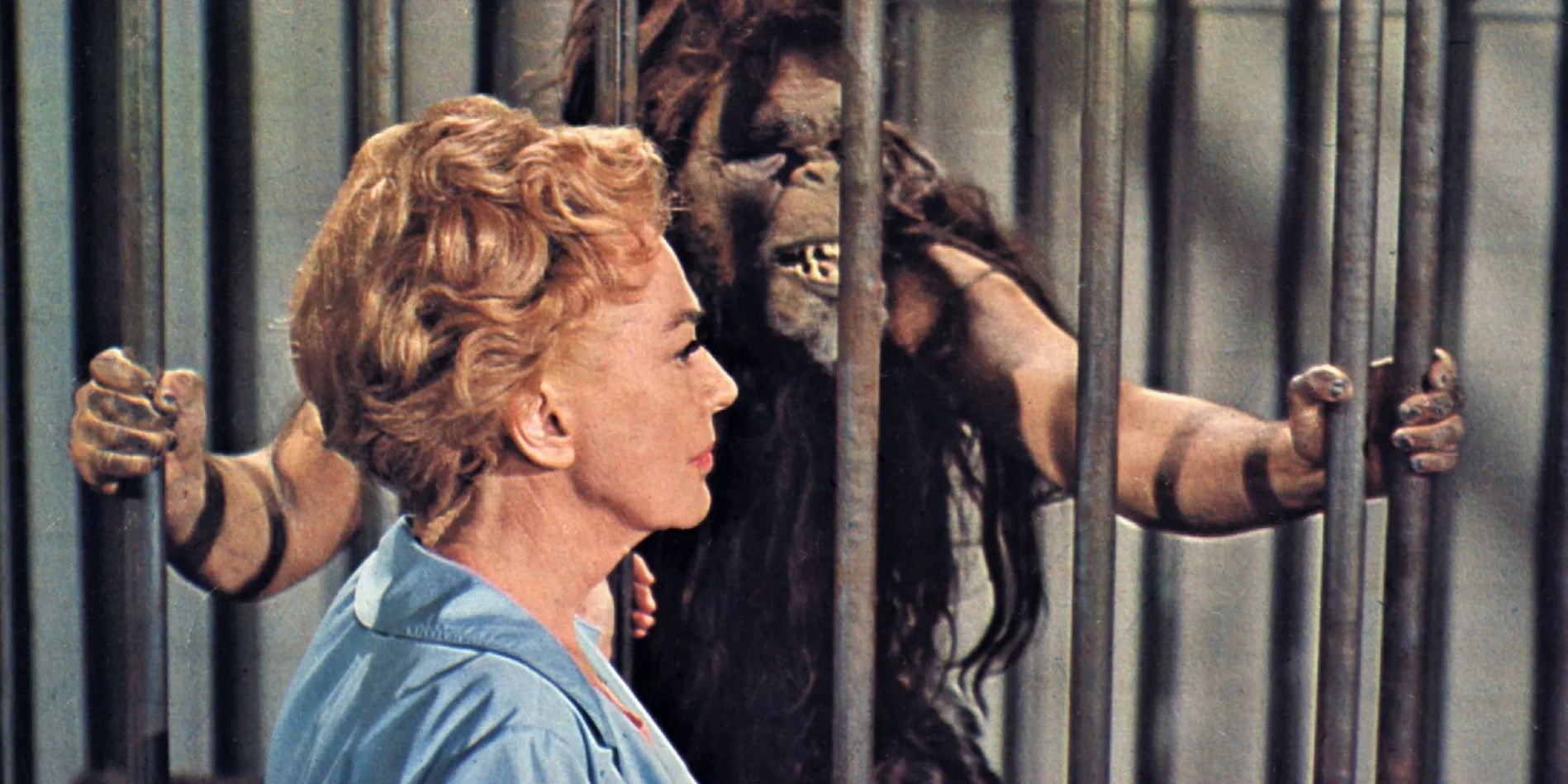
In her final film role, Joan Crawford stars as an anthropologist who discovers a prehistoric caveman, Trog, living in modern-day England. Even Crawford couldn’t save Trog, as perhaps the strangest sci-fi horror film ever made is hampered by its low-budget effects and a script that borders on the absurd. Right from the design, particularly of its exotic creature, Trog is unconvincing, making it hard for audiences to even begin to appreciate the film. In his criticism of the film, Roger Ebert said of it, “Now what can you really say about a movie where Joan Crawford, dressed in an immaculate beige pantsuit, hunts through a cave shouting: ‘Trog! Here, Trog!’ to her pet troglodyte?”
Of course, it’s a film that could have been something, especially for its camp value, but its outdated special effects and melodramatic performances make it a curious artifact of its time at best. It’s a misstep in Crawford’s illustrious career that’s more suited for late-night mockery than serious viewing. —Namwene Mukabwa
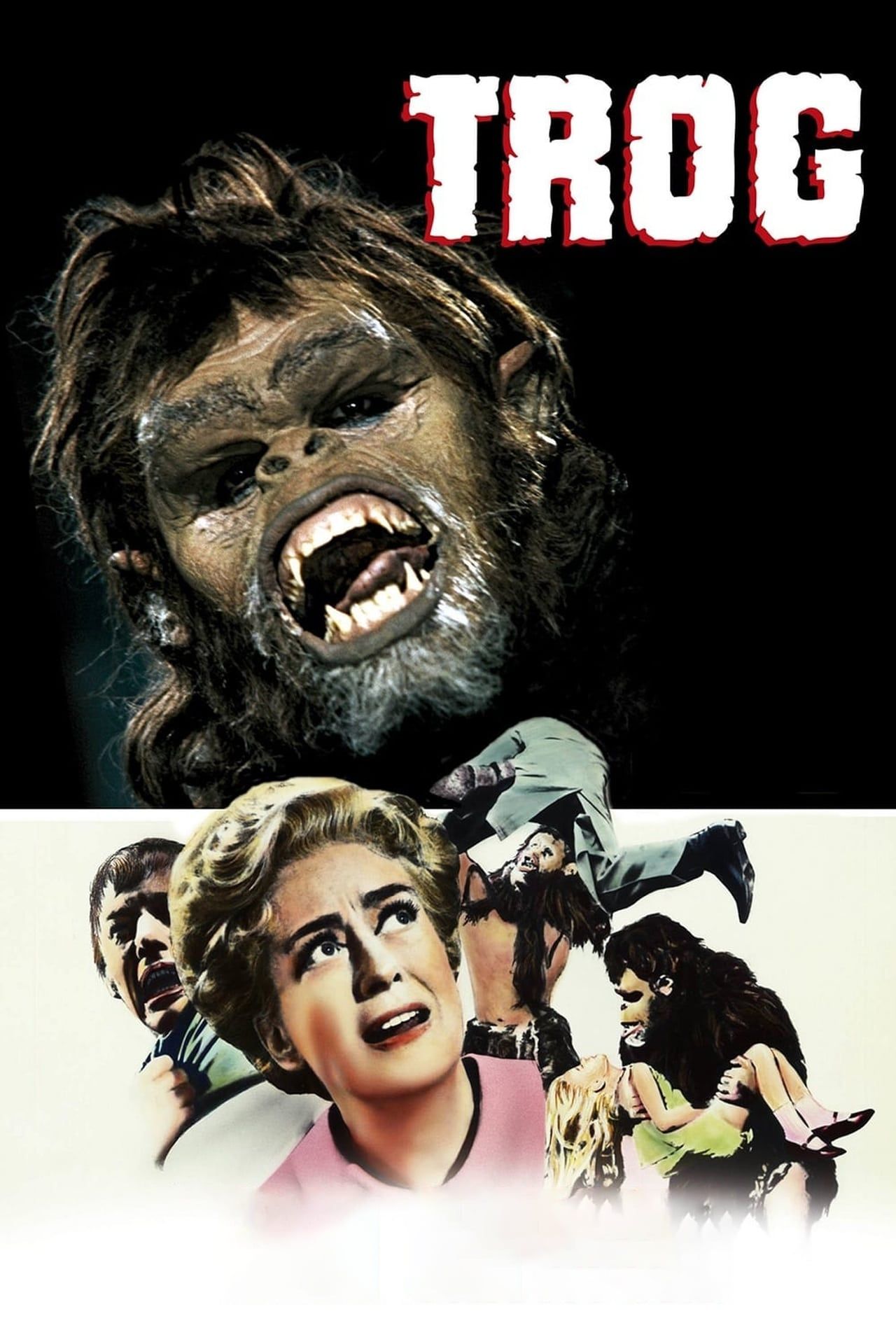
Trog
- Release Date
-
October 24, 1970
- Runtime
-
91 Minutes
10
‘Avalanche’ (1978)
Directed by Corey Allen
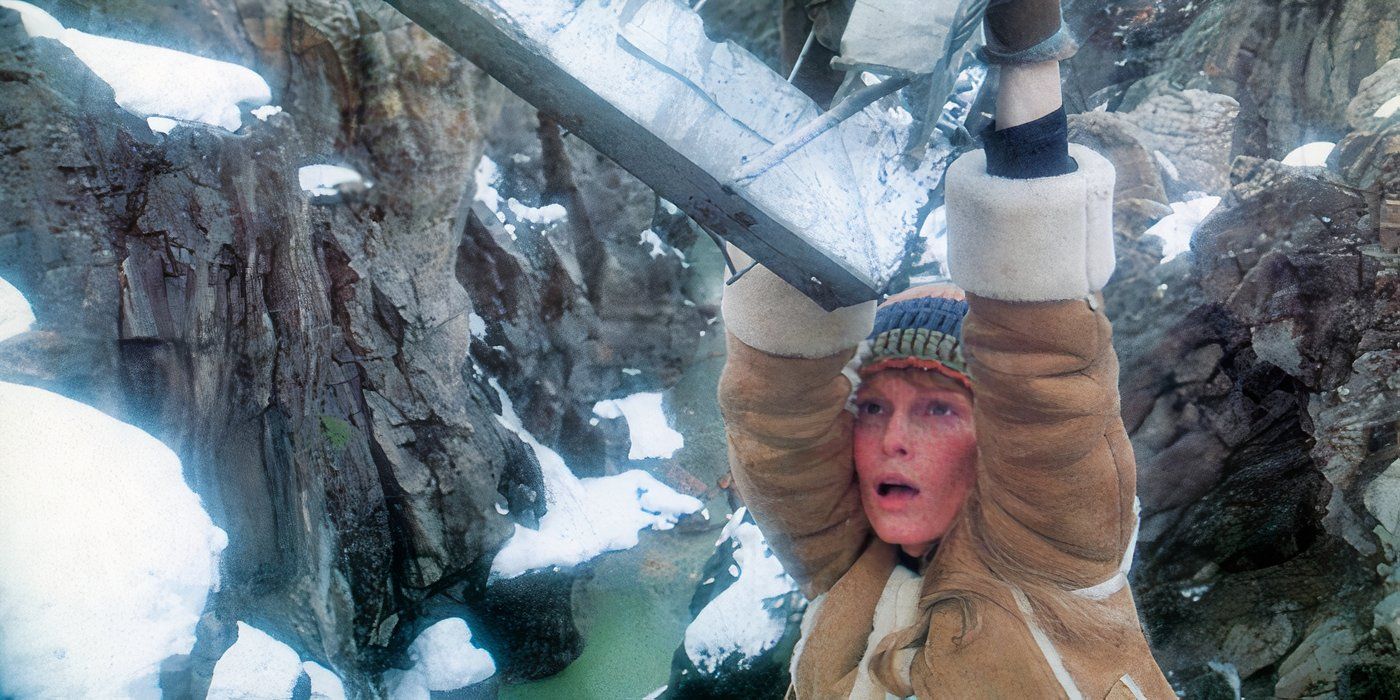
“When the snow comes down, everything changes.” In this misfiring disaster movie, David Shelby (Rock Hudson) has just opened a luxurious ski resort, but his celebration is cut short when an avalanche devastates the area. Meanwhile, his ex-wife Caroline Brace (Mia Farrow) becomes entangled in the chaos as the resort’s guests struggle to survive. The film attempts to blend disaster movie tropes with emotional drama, but the storytelling leaves much to be desired.
For a movie that sells itself on chaos and destruction, it takes an interminable amount of time to reach the titular disaster. The first hour is padded with banal character interactions and limp drama. Despite having stars like Hudson and Farrow on board, the performances are phoned in, with Farrow looking particularly disinterested. The avalanche, when it finally rolls around, is thoroughly underwhelming, looking much cheaper than one would expect from a movie with a $6.5m budget.
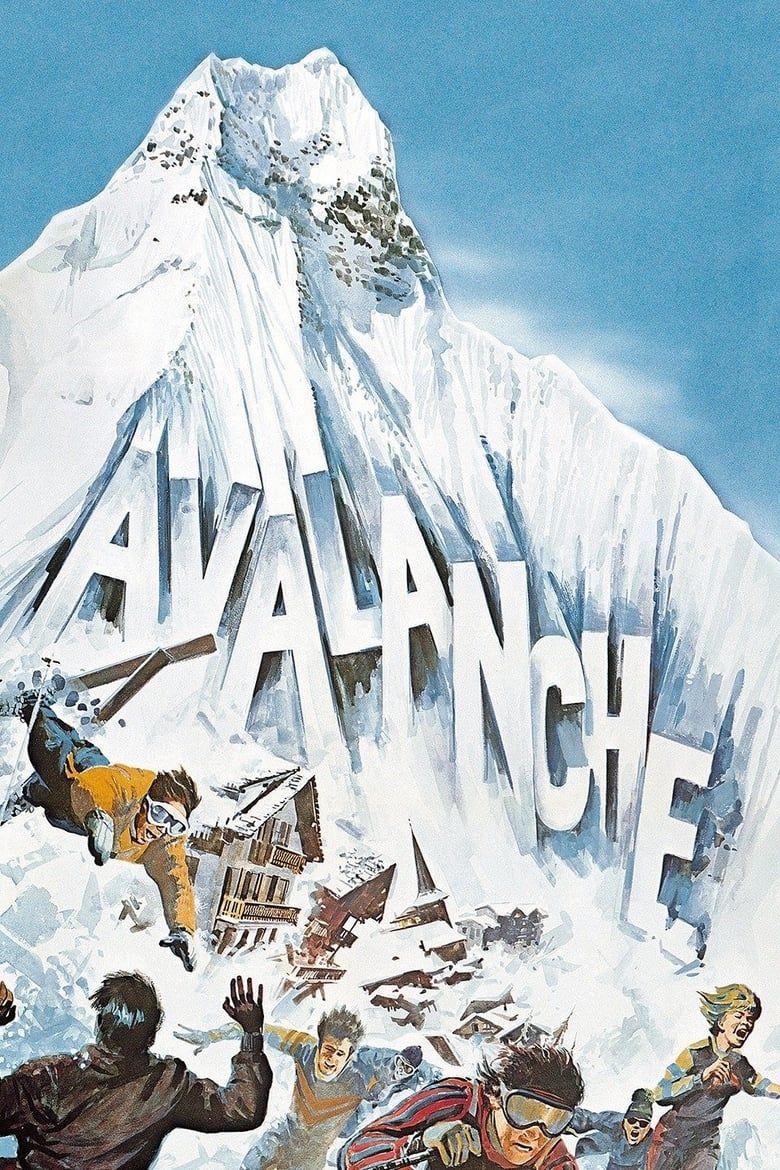
Avalanche
- Release Date
-
September 29, 1978
- Runtime
-
94 minutes
-

Mia Farrow
Caroline Brace
-

-

Robert Forster
Nick Thorne
-

Jeanette Nolan
Florence Shelby
9
‘Captain America’ (1979)
Directed by Rod Holcomb
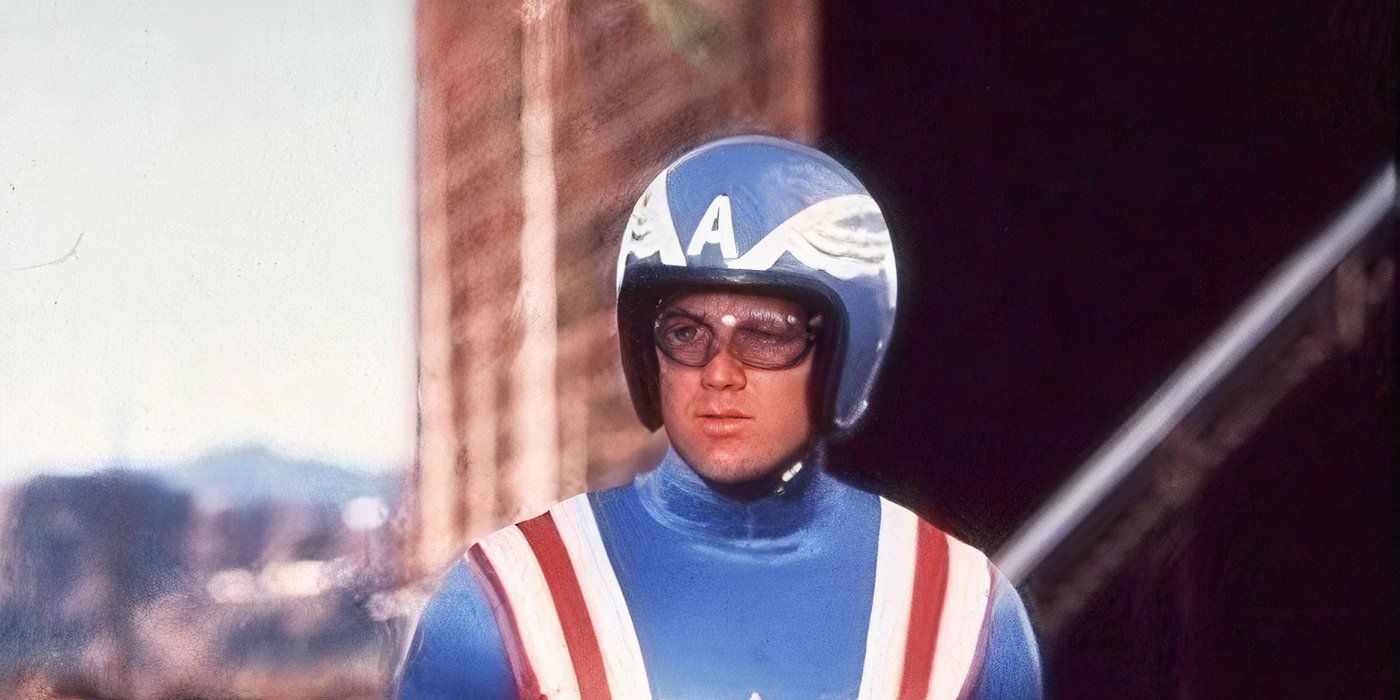
“Justice never takes a day off.” Most Marvel fans probably aren’t aware (or have chosen to forget) that there was actually a Captain America TV movie released in 1979. Instead of leaping straight into iconic superheroics, this Captain America introduces a long, meandering setup in which Steve (Reb Brown), an artist, reluctantly embraces his destiny. He dons a cheesy motorcycle helmet and shield, taking on low-stakes villains in a way that feels more like a spoof of the Marvel hero than a genuine adaptation.
The movie struggles to find its footing between being a superhero origin story and a pedestrian action-adventure, ultimately falling flat in both aspects. The action sequences are especially uninspired. Captain America’s supposed super strength and agility are rarely showcased, leaving him to awkwardly dodge bullets, jump over small obstacles, or engage in tepid chase scenes. By stripping away the character’s defining traits and replacing them with generic action-movie tropes, the movie totally squanders everything compelling about Captain America.
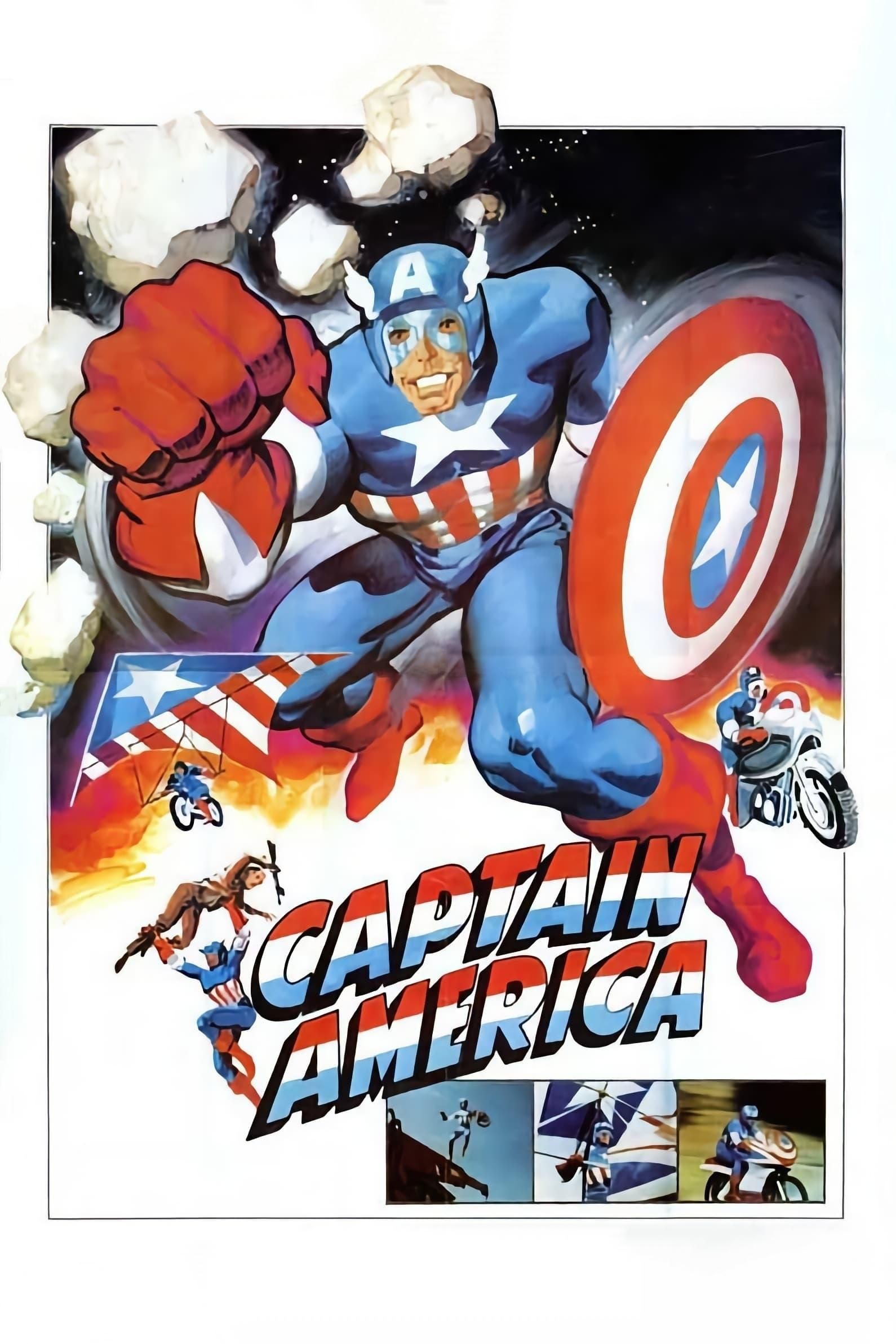
Captain America
- Release Date
-
January 19, 1979
- Runtime
-
97 minutes
-

Reb Brown
Captain America / Steve Rogers
-

Len Birman
Dr. Simon Mills
-

Heather Menzies
Dr. Wendy Day
-

Robin Mattson
Tina Hayden
8
‘The Last Movie’ (1971)
Directed by Dennis Hopper
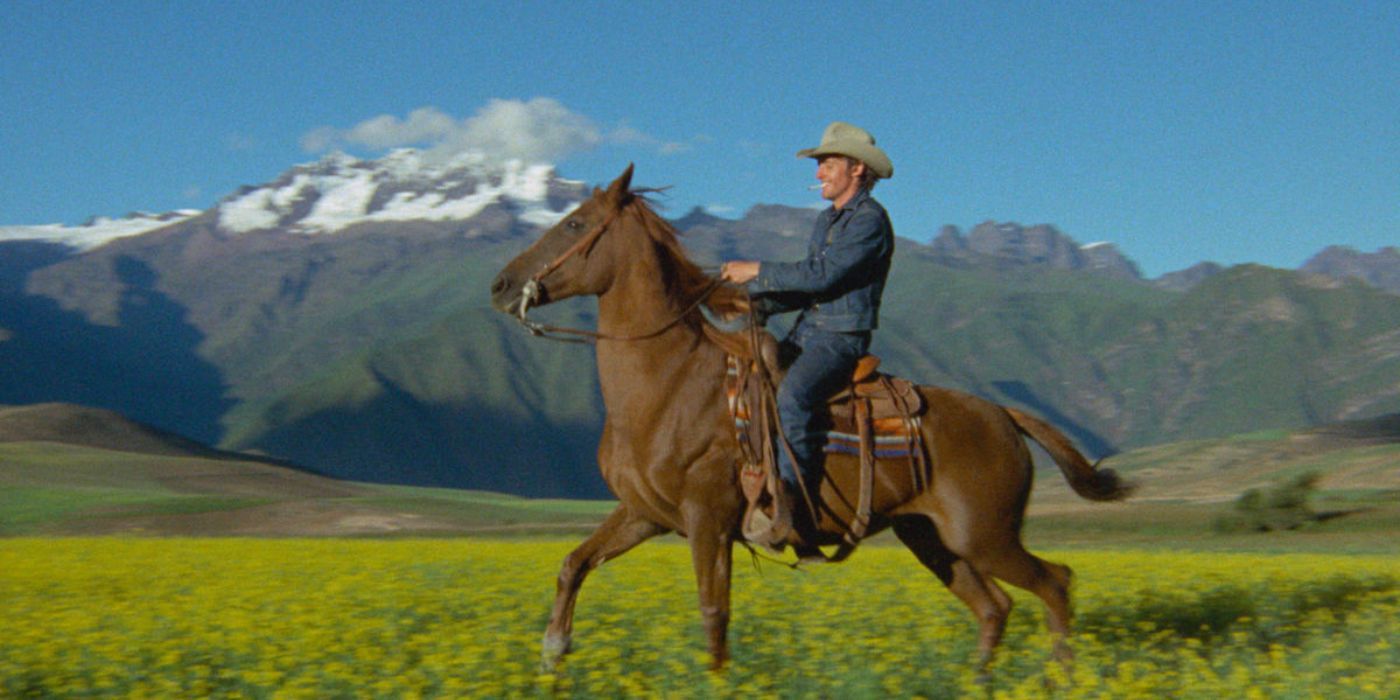
The Last Movie was so bad that it almost ended Dennis Hopper’s career. His first post-Easy Rider outing is an unfiltered blast of auteur indulgence that quickly dissolves into incoherence. It’s simply cinematic chaos. It even set a Guinness World Record for the longest pre-credit sequence in a film. Shot in Peru, the film stars Hopper as a stuntman who stays behind after a Western shoot, only for it to descend into a hallucinatory cycle of performance art and cultural voyeurism without a plot to speak of. When you want to appreciate its lush cinematography, its random nudity, stretches of silence, and visibly unfocused story get in the way.
Its post-production lasted a year under Universal Pictures’ supervision for a salvageable cut. It was the last movie Hopper ever wrote, and it took him out of Hollywood for years before Francis Ford Coppola gave him a second chance in Apocalypse Now in 1979. Maybe Shakespeare was wrong when he wrote that a rose by any other name would smell as sweet, because the film, like its title suggests, almost ended Hopper’s career. —Namwene Mukabwa
7
‘Blackenstein’ (1973)
Directed by William A. Levey
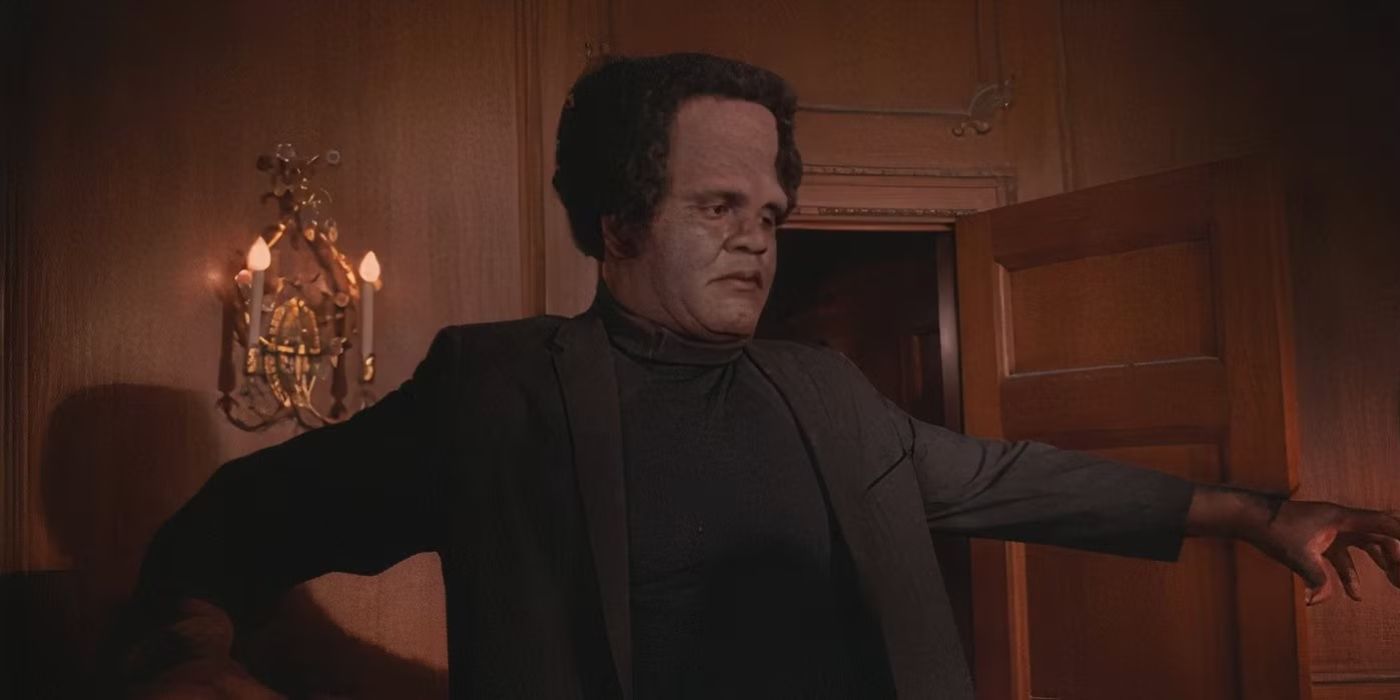
“Science created him, but he wanted revenge.” Another cash grab, this lame blaxploitation flick was an attempt to get in on the success of Blacula. It’s a riff on Frankenstein, following Dr. Winifred Walker (Ivory Stone), who enlists her former professor to save her fiancé Eddie (Joe De Sue) after he’s injured in Vietnam. Using experimental treatments, Eddie is restored but transformed into a monstrous version of himself. Unfortunately, the movie itself doesn’t hold up as a cult curiosity in the same way as its more successful contemporaries.
The idea of a Vietnam vet subjected to unethical medical experiments had potential for social commentary, but any deeper exploration is buried under layers of amateurish execution and narrative missteps. Instead of using this premise to blend genres effectively, the movie serves up a sluggish narrative peppered with unintentionally funny moments. Its mishmash of half-baked ideas and technical incompetence make it more of a chore to sit through than an enjoyable piece of camp.
6
‘Beyond the Valley of the Dolls’ (1970)
Directed by Russ Meyer
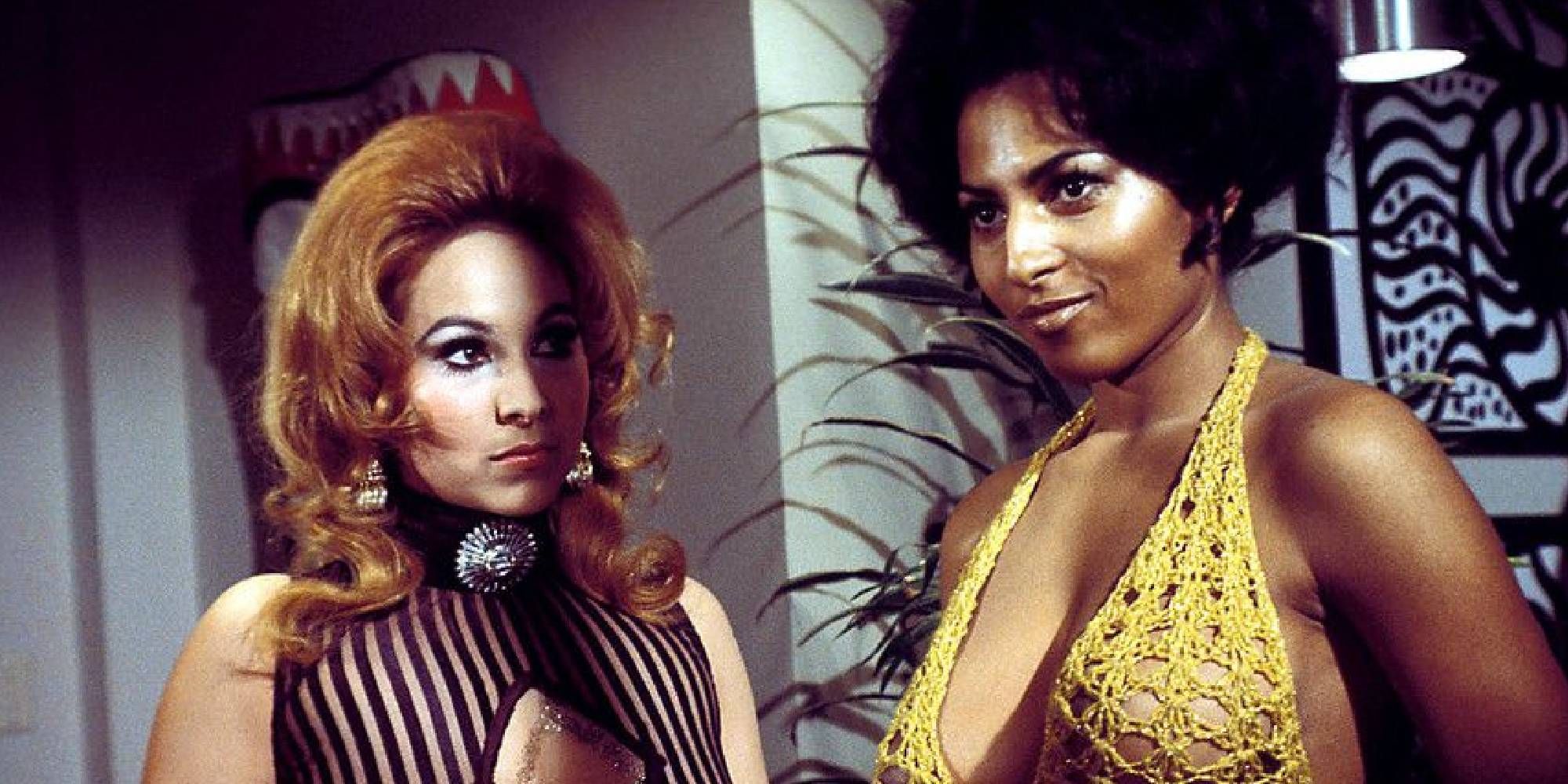
“Never let critics write movies” is what Roger Ebert’s effort at penning Beyond the Valley of the Dolls proves. Marketed as a Valley of the Dolls sequel, it is really Russ Meyer’s fever dream. In a nutshell, the film is about an all-girl rock band battling Hollywood decadence via nonsensical orgies and a chainsaw murder. Whether the film was meant to be a satire, as Ebert defended it, the attempt failed miserably, as it ends up drowning in self-parody.
The film’s scenes lurch from campy musical numbers to grotesque violence with whiplash-inducing incoherence. Is it feminist? Is it trash-art? It’s a confusing film. Even Ebert’s future co-host Gene Siskel gave it 0 stars. Roger Ebert finally admitted that it was a “spectacular miscalculation.” But with lines like “You will drink the black sperm of my vengeance,” the film has gained a cult following who probably revere its so-bad-it’s-good feeling. —Namwene Mukabwa
Beyond the Valley of the Dolls
- Release Date
-
July 17, 1970
- Runtime
-
109 minutes
- Director
-
Russ Meyer
-

Dolly Read
Kelly McNamara
-

Cynthia Myers
Casey Anderson
-

Marcia McBroom
Petronella Danforth
-

John Lazar
Ronnie Z-Man Barzell
